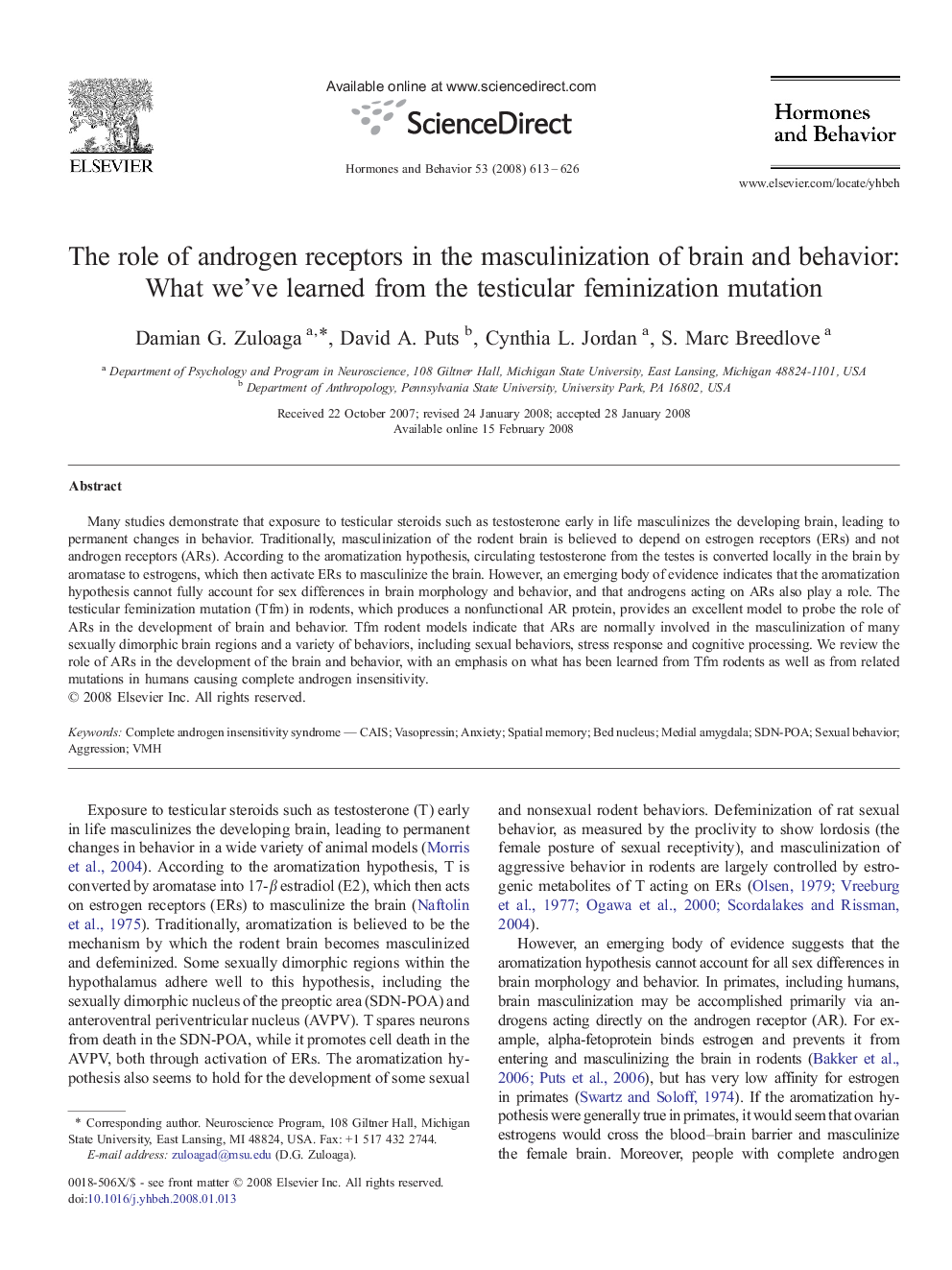| کد مقاله | کد نشریه | سال انتشار | مقاله انگلیسی | نسخه تمام متن |
|---|---|---|---|---|
| 323784 | 540779 | 2008 | 14 صفحه PDF | دانلود رایگان |

Many studies demonstrate that exposure to testicular steroids such as testosterone early in life masculinizes the developing brain, leading to permanent changes in behavior. Traditionally, masculinization of the rodent brain is believed to depend on estrogen receptors (ERs) and not androgen receptors (ARs). According to the aromatization hypothesis, circulating testosterone from the testes is converted locally in the brain by aromatase to estrogens, which then activate ERs to masculinize the brain. However, an emerging body of evidence indicates that the aromatization hypothesis cannot fully account for sex differences in brain morphology and behavior, and that androgens acting on ARs also play a role. The testicular feminization mutation (Tfm) in rodents, which produces a nonfunctional AR protein, provides an excellent model to probe the role of ARs in the development of brain and behavior. Tfm rodent models indicate that ARs are normally involved in the masculinization of many sexually dimorphic brain regions and a variety of behaviors, including sexual behaviors, stress response and cognitive processing. We review the role of ARs in the development of the brain and behavior, with an emphasis on what has been learned from Tfm rodents as well as from related mutations in humans causing complete androgen insensitivity.
Journal: Hormones and Behavior - Volume 53, Issue 5, May 2008, Pages 613–626